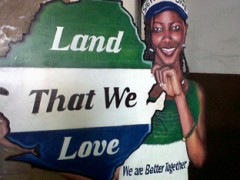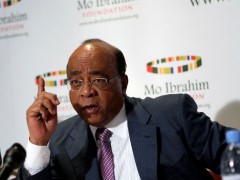-

Land Grabbing in Sierra Leone: Who Benefits – Farmers or Investors?
In launching the “Agenda for Change” in 2008, the Government of Sierra Leone declared “agricultural development and food security to be the foundation of the country’s economic development and poverty reduction” strategy. But is the large-scale acquisition of arable farmland in Sierra Leone by foreign investors part of this […]
-

The Greater We: The Mo Ibrahim Index of African Governance and Africa’s Youth
The World Bank defines governance as “the exercise of political authority and the use of institutional resources to manage society’s problems and affairs.” As we move forward in the second decade of the 21st century, the question of good governance is particularly important. Defining good governance (a nebulous term) as […]
-
Remittances to Drought/Famine-Affected Households in Northern Kenya
Women and children are the ones most susceptible to the effects of drought and famine which is why it is important to consider ways to make remittances more accessible to them. Kenya already has the infrastructure and services to lower the cost of sending money to relatives who need monetary […]
-
African Governments, NGOs & Civil Society: A Crisis of Legitimacy?
In April, the Columbia Journalism Review raised the question of whether non-governmental organizations (NGOs) in Africa benefit from particular representations of the continent as conflict and poverty-ridden. „Yet US journalism continues to portray a continent of unending horrors. Last June, for example, Time magazine published graphic pictures of a naked […]
-
“Cash Back:” Remittances from the African Diaspora
The African diaspora is comprised of over 30 million emigrants from Africa‘s 54 nations. The International Fund for Agricultural Development (IFAD) estimates that each year the African diaspora contributes about 40 billion USD in the form of remittances to their families and communities. Between 1960 and 2003, the continent of […]
